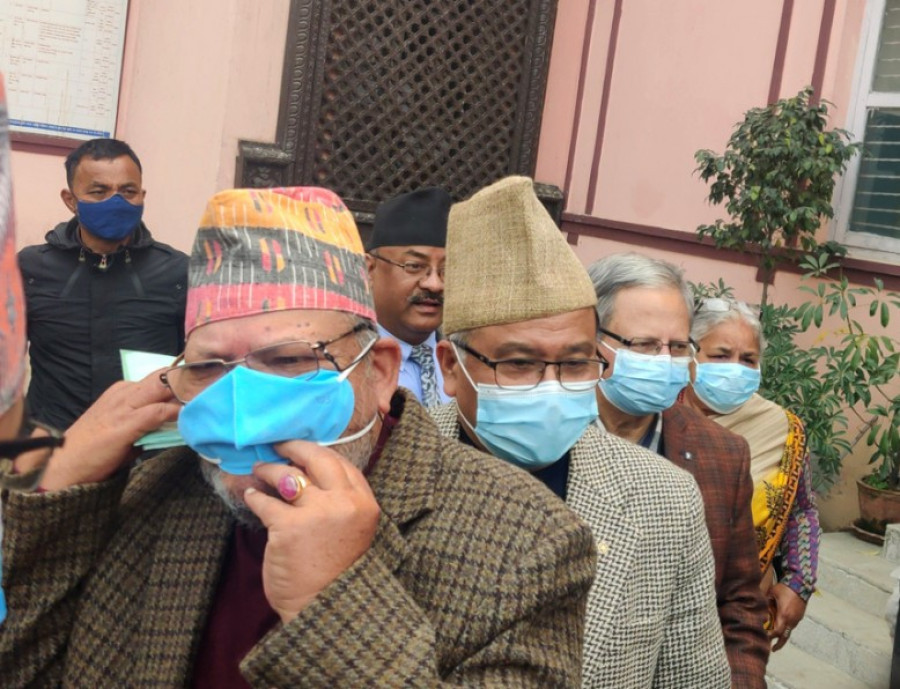Editorial
Contempt of conscience
Let freedom of speech and divergent views flourish.
On Monday, four former chief justices visited the Supreme Court, which they headed at different times, to assert that their opinion on the House dissolution was part of freedom of expression and did not amount to contempt of court. Min Bahadur Rayamajhi, Anup Raj Sharma, Kalyan Shrestha and Sushila Karki had been summoned by the apex court to respond to a petition which said the joint statement they released was an attempt to influence the bench hearing cases against the House dissolution. By appearing before the court in response, they have shown their respect for and faith in the judiciary. For starters, the former chief justices had on January 8 released a joint statement saying the constitution did not allow the prime minister to dissolve the House of Representatives.
The charges of contempt of court filed against the former chief justices were amateurish attempts to discourage citizens from speaking up about matters that concern them. But the incident also opened a new debate about what counts as freedom of expression and what counts as contempt of court, and where these two concepts diverge. The responses of the four former chief justices have clearly outlined what constitutes freedom of speech, and why it is crucial for safeguarding democracy. Their opinion was that Prime Minister KP Oli's act of House dissolution was unconstitutional. They rightly said that they were entitled to call it an unconstitutional act as per the freedom of speech bestowed on them, as citizens, by the constitution.
The way the four former judges were summoned to the top court for merely expressing their opinion on contemporary political developments in the capacity of citizens, there is a high probability of the very idea of contempt of court being misused for petty purposes in the future. And that is a dangerous sign for the times to come. The judiciary cannot be dragged into petty whims of individuals who cannot stand the opinions of other people. More so, the judiciary cannot continue to expend its precious resources entertaining such whims. Otherwise, what this leads to is a systematic erosion of the credibility of public institutions that are responsible to uphold democratic ideals. The judiciary, as the custodian of freedom of expression, cannot be too touchy about questions being asked about its work.
There is a serious problem with the idea that the judiciary is a sanctimonious institution whose authority cannot be questioned. The judiciary is not above public scrutiny. The judiciary also has an obligation to uphold the idea of freedom of speech, which is a hallmark of a democratic society. That former chief justices have today been dragged to the court for expressing their opinion on issues they care about should also serve as a warning bell for the sitting justices as to how they are to act on matters of freedom of expression, as their present acts pave the way for the future of democracy. Judges must act as custodians not only of constitutional and legal provisions but also of moral values that keep society together. Even in cases where a judgement has already been passed, a fair criticism on the merits of the judgement does not amount to contempt of court, although the very idea of fair criticism is open to interpretation.
Pressing charges against citizens who speak anything that goes against our narrow, personal worldview is tantamount to contempt of conscience. We cannot afford to become a republic of hurt sentiments and fragile egos. Or perhaps we have already become one. In such a case, it is high time we came back to our senses and let freedom of speech and divergent views flourish.




 13.12°C Kathmandu
13.12°C Kathmandu














